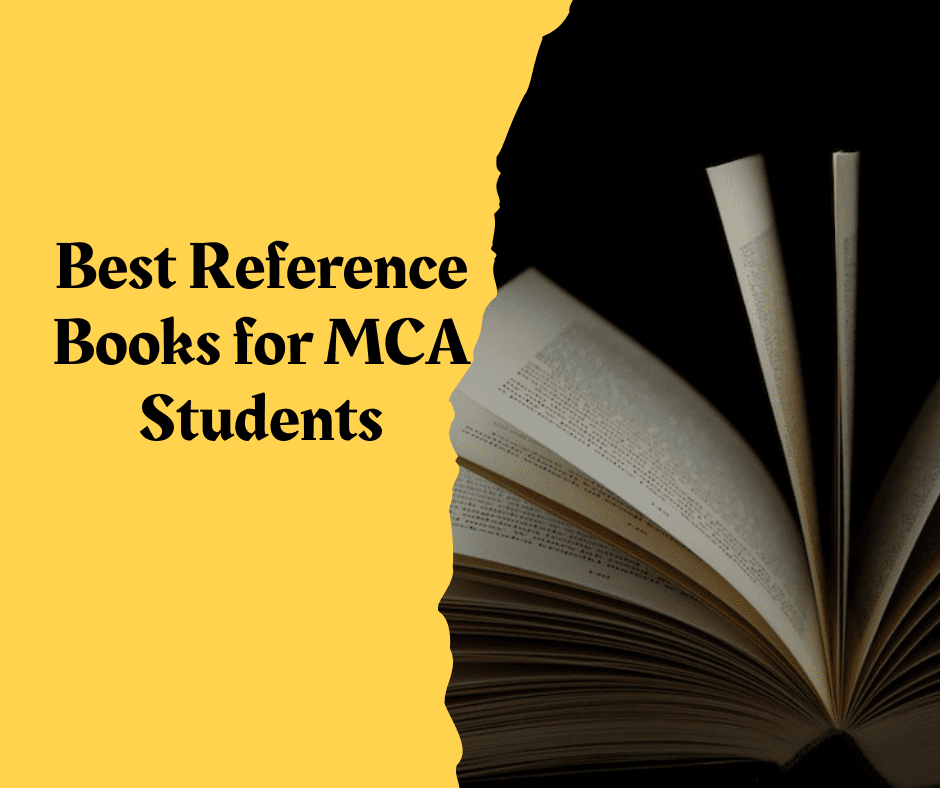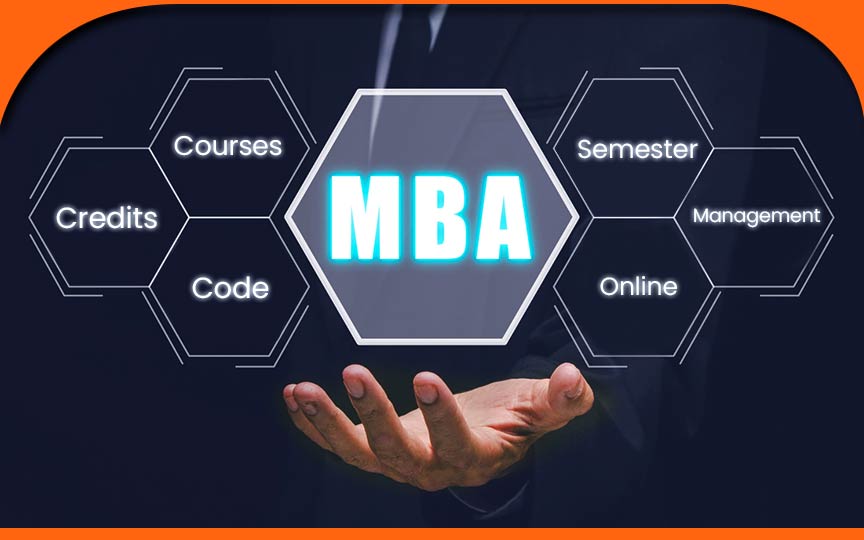When pursuing a Master of Computer Applications (MCA) degree, having the right reference books can be incredibly valuable to help you understand complex topics and excel in your studies. Here are some widely recommended reference books for MCA students:
“Computer Organization and Design” by David A. Patterson and John L. Hennessy: This book provides a comprehensive introduction to computer architecture and design, which is essential for MCA students studying computer systems.
“Introduction to Algorithms” by Thomas H. Cormen, Charles E. Leiserson, Ronald L. Rivest, and Clifford Stein: This classic book is a must-have for students studying algorithms and data structures, a core component of MCA programs.
“Operating System Concepts” by Abraham Silberschatz, Peter B. Galvin, and Greg Gagne: Understanding operating systems is crucial for MCA students, and this book provides a solid foundation.
“Database Management Systems” by Raghu Ramakrishnan and Johannes Gehrke: For students studying database management, this book covers the principles and practices of database systems.
“Computer Networks” by Andrew S. Tanenbaum and David J. Wetherall: This book is an excellent resource for understanding computer networks, which is a fundamental topic in MCA programs.
“Software Engineering” by Ian Sommerville: Software engineering principles are essential for MCA students, and this book offers a comprehensive overview of the subject.
“Design and Analysis of Algorithms” by Anany Levitin: This book is another valuable resource for algorithms and data structures, offering clear explanations and practical examples.
“Introduction to the Theory of Computation” by Michael Sipser: For students studying theory of computation and formal languages, this book is a recommended choice.
“Data Communications and Networking” by Behrouz A. Forouzan: This book covers a wide range of topics related to data communications and networking, making it useful for MCA students.
“Modern Operating Systems” by Andrew S. Tanenbaum and Herbert Bos: This book delves into modern operating systems and is a good complement to the classic operating system book mentioned earlier.
“Information Security: Principles and Practice” by William Stallings and Lawrie Brown: In an era of increasing cybersecurity concerns, this book is a valuable resource for understanding information security principles.
“Computer Graphics with OpenGL” by Donald D. Hearn and M. Pauline Baker: For students interested in computer graphics, this book offers a solid introduction to the field.
“Introduction to Software Engineering” by Ronald J. Leach: This book covers software engineering concepts and practices, providing a good foundation for MCA students.
“Computer Graphics: Principles and Practice” by John F. Hughes, Andries van Dam, Morgan McGuire, David F. Sklar, James D. Foley, and Steven K. Feiner: This comprehensive book focuses on the principles and practices of computer graphics.
“Distributed Systems: Concepts and Design” by George Coulouris, Jean Dollimore, and Tim Kindberg: Understanding distributed systems is crucial in today’s computing landscape, and this book provides insights into their design and operation.
“Introduction to Artificial Intelligence” by Wolfgang Ertel: For students interested in artificial intelligence, this book offers an introduction to AI concepts and techniques.
“Computer Architecture: A Quantitative Approach” by John L. Hennessy and David A. Patterson: This book provides an in-depth look at computer architecture from a quantitative perspective.
“Information Retrieval: Implementing and Evaluating Search Engines” by Stefan Büttcher, Charles L. A. Clarke, and Gordon V. Cormack: For those studying information retrieval and search engines, this book is a valuable resource.
“Software Engineering: A Practitioner’s Approach” by Roger S. Pressman: This is another well-regarded book on software engineering that covers the practical aspects of software development.
“Pattern Recognition and Machine Learning” by Christopher M. Bishop: For students interested in machine learning and pattern recognition, this book provides a comprehensive introduction to the subject.
“Cryptography and Network Security: Principles and Practice” by William Stallings: Understanding cryptography and network security is crucial in the field of computer science, and this book covers these topics in detail.
“Computer System Architecture” by M. Morris Mano: This book focuses on the architecture of computer systems and provides a solid foundation in the subject.
“Automata Theory, Languages, and Computation” by John E. Hopcroft, Rajeev Motwani, and Jeffrey D. Ullman: This is a classic text for students studying automata theory and formal languages.
“Web Technologies: A Computer Science Perspective” by Jeffrey C. Jackson: For students interested in web development and technologies, this book provides a comprehensive overview.
“Machine Learning” by Tom M. Mitchell: This book is a good resource for students looking to delve deeper into machine learning concepts and algorithms.
“Mobile Computing” by Raj Kamal: This book provides insights into the principles and practices of mobile computing, which is a growing field in computer science.
“Compiler Design” by Alfred V. Aho, Monica S. Lam, Ravi Sethi, and Jeffrey D. Ullman: Understanding compiler design is important for students interested in programming language theory and development.
“Computer Graphics Through OpenGL: From Theory to Experiments” by Sumanta Guha: Another valuable resource for students studying computer graphics, focusing on OpenGL.
“Database Systems: The Complete Book” by Hector Garcia-Molina, Jennifer Widom, and Jeffrey D. Ullman: This comprehensive book covers the principles of database systems and is useful for students studying database management.
“Introduction to Automata Theory, Languages, and Computation” by John E. Hopcroft, Rajeev Motwani, and Jeffrey D. Ullman: Another classic on automata theory and formal languages.
“Big Data: A Revolution That Will Transform How We Live, Work, and Think” by Viktor Mayer-Schönberger and Kenneth Cukier: For students interested in big data and data analytics, this book provides insights into the impact of big data on various fields.
“Artificial Intelligence: A Modern Approach” by Stuart Russell and Peter Norvig: This is a widely used textbook for students studying artificial intelligence, covering a broad range of AI topics.
“Computer and Communication Networks” by Nader F. Mir: Understanding computer networks is essential, and this book provides insights into network design and protocols.
“Computer Science: An Overview” by J. Glenn Brookshear: This book offers a comprehensive overview of the field of computer science, making it suitable for students seeking a broad understanding.
“Introduction to the Theory of Computation” by Michael Sipser: Another respected book on the theory of computation, covering formal languages and automata theory.
“Python Crash Course” by Eric Matthes: For students interested in programming and software development, this book offers a practical introduction to Python programming.
“Computer Organization and Architecture: Designing for Performance” by William Stallings: This book focuses on computer organization and architecture, with an emphasis on performance considerations.
“Data Structures and Algorithm Analysis in C++” by Mark Allen Weiss: A valuable resource for students studying data structures and algorithms, with a focus on the C++ programming language.
“Computer Graphics: Principles, and Practice in C” by James D. Foley, Andries van Dam, Steven K. Feiner, and John F. Hughes: This is another edition of the computer graphics classic, with a focus on the C programming language.
“Data Mining: Concepts and Techniques” by Jiawei Han and Micheline Kamber: For students interested in data mining and knowledge discovery, this book covers the concepts and techniques in this field.
As with previous recommendations, the choice of reference books should align with your specific courses and interests within your MCA program. Always consult your professors and syllabus for any recommended readings or textbooks tailored to your curriculum.







